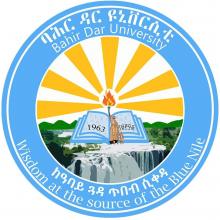
EiTEX in technology transfer
BDU:Ethiopian Institute of Textile and Fashion Technology (EiTEX) at Bahir Dar University is one of the contributing sectors in Ethiopia’s journey toward industrialization. With the aim of supporting the development of textile, garment and leather industries, EiTEX enhances the country’s competitiveness on the international stage.
The institute has recently held its third annual international conference on cotton, textile and apparel value chain in Africa. Scholars from different countries such as South Africa, Kenya Belgium, China, Madagascar, Zimbabwe, India and Uganda have presented their research papers on the conference.
The conference was aimed at bringing the current African reality regarding textile, garment and apparel value chain into an intellectual platform in a way that helps Ethiopia benefit from knowledge and technology transfer, and work toward technology development and innovation. Hence, the experiences of the scholars have been shared.
According to the research report on the cotton quality assessment in Ethiopia, strong efforts to change work practices and technology on ginners as well as the introduction of marketing systems relying on cotton quality with a pricing system based on discount have been recommended in order to ensure better return for cotton growers, ginners, spinners and the national economy at large.
Ethiopian large scale cotton productions are facing several challenges that need to be swiftly addressed. Creating awareness and training small scale farmers on basic production techniques and facilitating credit to enhance productivity could help benefit the farmers.
In connection to Ethiopian cotton standard and marketing status, it has been recommended that Ethiopian cotton sectors must focus on making dramatic improvements in facilitating quality cotton production, marketing and value addition.
Addressing the growing interest of fashion designers in incorporating organic cotton in their productions, promoting the growth of cotton industries and valuing ethically produced products both locally and internationally have been recommended in relation to ethical production of organic cotton.
The rate of deterioration of textile materials can be hastened by the addition of manure and water. Soil with chicken manure and daily addition of water offered the highest fabric deterioration rate.
Based on research done on e-marketing utilization among apparel middle and small scale enterprises in Kenya, a recommendation has been made that more fashion entrepreneurs should be innovative and should keep a breast with development in e-business environment to increase their market share and their profitability.
Research on the conference, based on the experience of Kenya, has recommended that concerned organizations have to create a functional awareness among apparel consumers about sustainable consumptions, recycling and disposal practice.
According to the research conducted on social media marketing on fashion, in Kenya, facebook marketing was the most utilized social media too. On the conference, several other papers were presented and experiences, in light of the Ethiopian context, were shared.
The presentations and the discussions were so lively. The core point, however, is the lesson Ethiopia could draw from the experiences of these countries to realize its endeavor of technology transfer was very important.
Students and instructors of EiTEX have prepared exhibition displaying a lot of creative works they have undertaken in the areas of textile and fashion. The institute’s students have also performed fashions on stages.
Bahir Dar University aspires to build an education system on a practical foundation that could transform the society based on science and technology. EiTEX begins third annual conference





